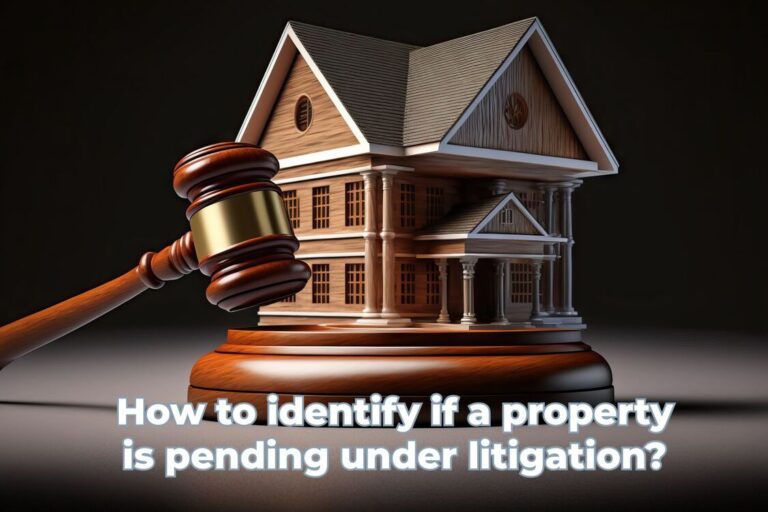Buying property can be a big step in life, and it comes with its own set of challenges, especially when it comes to legal matters. It’s not uncommon for people to purchase property only to discover that legal cases are pending against it. This can happen when buyers are not sure how to check for these issues, which can be tied up in the legal system for years.
Let’s break down the common legal disputes that every prospective property buyer should be aware of:
Ownership Disputes and Inheritance Issues
The first question that must be asked is, who actually holds the ownership rights to the property in question? This can become a complex issue, especially if the property has been passed down through the family as an inheritance. If the property is what is referred to as ‘ancestral’, meaning that it has been handed down through successive generations, the situation can become even more intricate. In such cases, there may be multiple family members who could potentially have a legal claim to the property. This could lead to disputes within the family over who has the right to sell the property. Therefore, as a potential buyer, it is of utmost importance to ensure that all such familial disagreements have been satisfactorily resolved before you proceed with your purchase. This will safeguard you from any future legal complications that may arise regarding the property’s ownership.
Declaration Suits and Boundary Conflicts
One crucial red flag to keep an eye out for in real estate transactions is the issue of declaration suits. These situations typically arise when there are conflicting claims about the ownership of a piece of land. In other words, two or more different parties may claim they are the rightful owners of the same piece of property. Alternatively, a common issue that can spark a declaration suit is if someone has constructed a building or other structure that encroaches onto someone else’s property. This can lead to a litany of legal troubles and headaches for all involved. To avoid finding yourself inadvertently embroiled in the middle of such a potentially messy conflict, it’s imperative to take a few precautionary steps. You should make it a point to physically inspect the property in question. This can help you spot any potentially problematic issues early on. Additionally, it’s strongly recommended to review the Encumbrance Certificate. This document should provide a comprehensive record of any existing claims or legal issues tied to the property. It can serve as a key resource in identifying any potential red flags before you commit to a real estate transaction.
Alimony Disputes and Property Attachment
There are occasions, such as during the proceedings of a divorce or alimony case, when a court might make the decision to place a restriction or a hold on a property. This is a legal action that essentially restricts the transfer or sale of that property until the case has been resolved. If you find yourself in a situation where you’re looking to purchase a property from a seller who is currently embroiled in such legal complications, you might find that the property you’re interested in is entangled in these court matters. In such cases, the completion of the sale might be postponed or complicated by these ongoing legal proceedings.
Neighborly Feuds: Encroachment and Easement Rights
Potential issues may not only be limited to the property you are considering to purchase, but can also extend to the adjacent land. For instance, there could be disputes about the exact location of the boundary line, or perhaps a situation where an individual is utilizing a portion of the property without the necessary permissions. These situations can lead to long term legal and relational issues, adding unwanted stress and potential financial burden. Therefore, it is wise to engage in a dialogue with the neighboring residents. This can provide you with an understanding of any existing issues, disputes or general sentiments about the area. Additionally, it’s crucial to investigate if there are any ongoing legal complaints or unresolved issues associated with the property. This proactive approach can help you make an informed decision and avoid potential pitfalls in the future.
Checking for Court Seals on Property Deeds
When you begin the process of examining the documents related to the property, it is of paramount importance to pay special attention to the deed. The deed, as a legal document, is representative of the ownership of the property and can often provide insight into the property’s history. As such, you should be highly vigilant for any stamps, marks, or notations that may have been made by a court or legal authority. Any such indicators on the deed or accompanying paperwork can serve as a tell-tale sign, an undeniable red flag that the property in question may be entangled in a legal case. This could include disputes over ownership, boundaries, or other legal issues. Hence, these marks are often the first indication that there may be potential complications with the property, warranting further investigation.
The Role of Encumbrance Certificates in Identifying Litigations
In recent years, it has been increasingly observed that ongoing court cases are being mentioned in the Encumbrance Certificate. This important document has the capacity to inform you if the property that has piqued your interest is presently embroiled in a legal dispute or litigation.
Before you make the significant decision of investing in a property, it is crucial to ensure you have done extensive groundwork. This includes checking all the pertinent documents meticulously, engaging in detailed conversations with people who might provide insightful information, and perhaps even seeking the counsel of a professional legal advisor. It is this meticulous process of checking and cross-verifying — a practice known as due diligence — that can serve as a safety net, protecting you from unexpected and potentially harmful legal issues that may arise with your newly acquired property in the future.
Remember, when it comes to property, it’s better to be safe than sorry!

